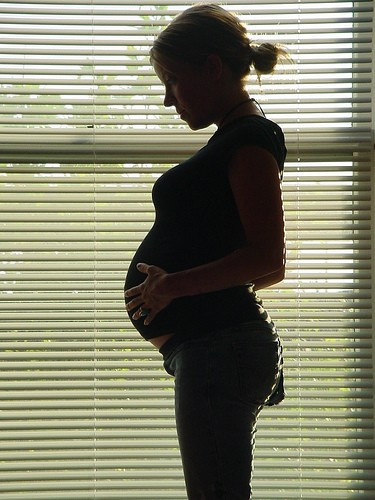Nigel Farage Explains Why Women Are 'Worth Less' Than Men

Nigel Farage has said the gender pay gap exists because women who have children are "worth less" to employers than men.
According to the Ukip leader, discrimination over pay does not exist because female employees without children do "as well or better than men".
Speaking at a debate in the Square Mile, he claimed women with children are responsible for their own reduction in pay if they have children – because they take maternity leave and become less valuable to their businesses.
The issue of women's pay has been recently brought to light again, after it was revealed last month that the pay gap had widened again for the first time in five years.
Since 2008, the Office for National Statistics said the difference had risen to 19.7% for all employees, including part-time workers. For full-time workers alone, the difference based on median hourly earnings has risen to 10%.
However, Nigel Farage has denied the City is still an "old boys club" – that discriminates, through pay and hiring, against working women.

As inadvertently highlighted by Farage, bias against mothers is just one of the attributing factors in sexual discrimination over pay. Since the late 1970s, when the Equal Pay Act came into force in 1975, the pay gap between men and women has shrunk – until now.
The recent statistics have revealed the gap is increasing once more, as a lack of flexibility in managerial and executive roles means women in Britain are still earning 15% less than men. This is the equivalent of approximately £5,000 per year.
According to the Organisation for Economic Development, the average woman in a senior role will earn £425,000 less in her lifetime than a man. The same report, which came out last month, also reported that women are less likely to receive a bonus.
To some extent, the outdated gender stereotype that women lack the assertiveness to demand a pay rise still exists. There is a similar assertion that females lack the competitiveness that leads to more senior positions, which leads to reduced pay.
It is these archaic prejudices – and the ethos of the likes of Farage – that have gradually broadened the pay gap.
As he states, the "biological choices" made by women – primarily, whether or not to have children – is a major factor in the pay gap.
However, the problem lies with the societal view that women who take maternity leave are less "dedicated" to their jobs.
Farage emphasises, albeit from an opposing point of view, that "young, able women who are prepared to sacrifice the family life and stick to their career will do as well or better than men".
Asking about marital or family status in a job interview is illegal in the UK, yet a report by the Equality Review in 2007 is an example of the discrimination that still exists. In the survey, 70% of recruiters questioned revealed they have been asked to avoid hiring women who could be likely to get pregnant. Women of childbearing age were less likely to be given a job, regardless of their qualifications or experience.
In order to solve the problem, transparency regarding pay is paramount. Organisations which do not uphold the law need to be accountable and most importantly, there needs to be a cultural shift in attitude towards working mothers.
© Copyright IBTimes 2025. All rights reserved.






















